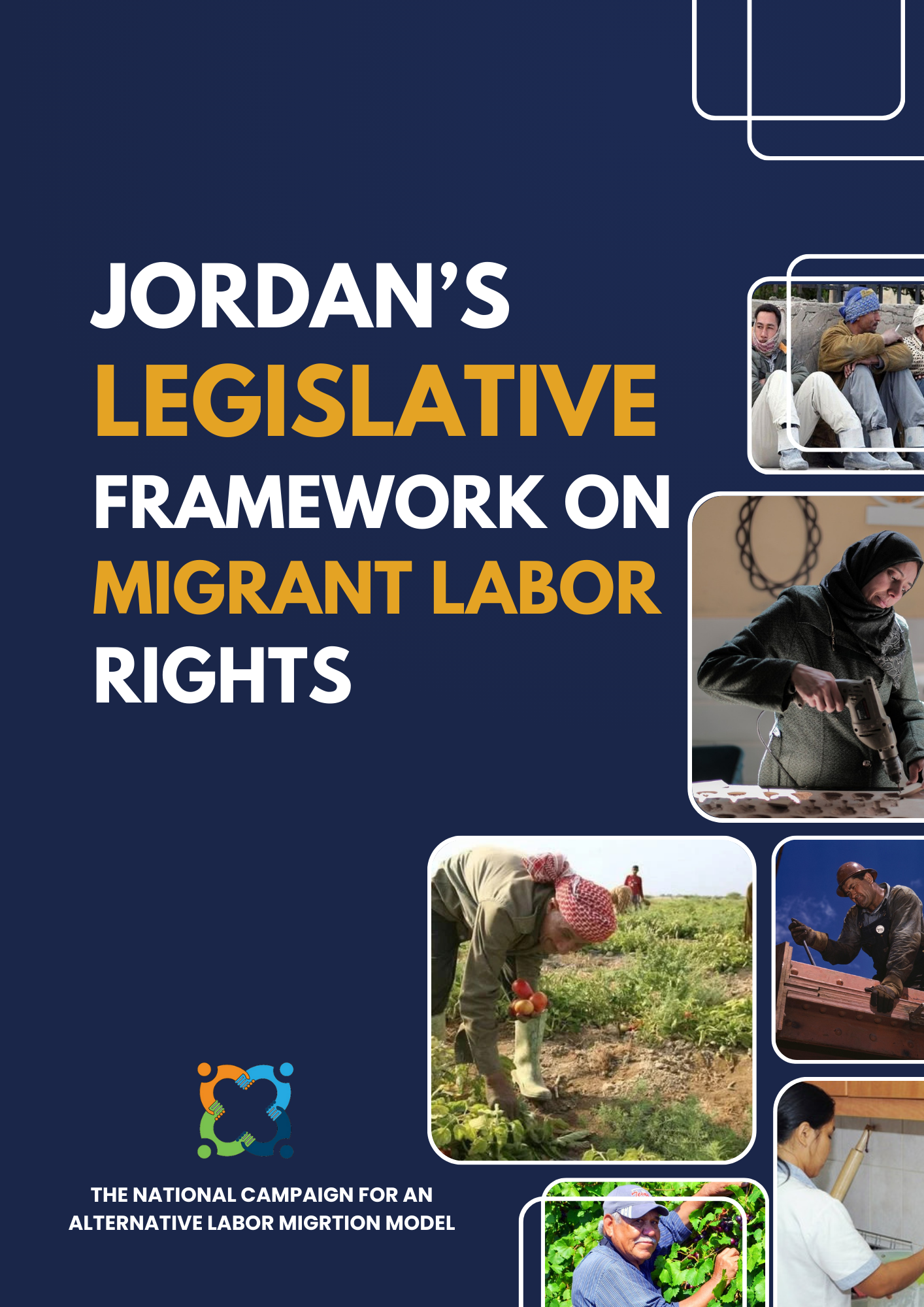Jordan’s Legislative Framework on Migrant Labor Rights
Introduction: Jordan is among the countries that depend on migrant (non-national/expatriate)1 labor; compared to the high unemployment rate of 24% in 2022, it could be said that Jordan’s reliance on migrant labor is quite high due to many reasons, including the mismatch between the educational system outputs and labor market demand. Additionally, migrant labor in Jordan possesses the skills and qualifications that suit the demand on manual labor conditions across the labor-intensive sectors like construction, agriculture, and domestic work. Hence, migrant labor has become a key component of the labor market structure in Jordan. Occupations or professions of migrant labor are often unattractive to Jordanians or incompatible with their qualifications, given the lack of decent work conditions and poor labor protections (for nationals and non-nationals alike). Another driver in thisregard would be the educational policy imbalances as thousands graduate from universities in majors with almost zero demand in the labor market. Coupled with poor vocational training system, career and professional counseling and guidance services, they constitute a pool of push factors that render the Jordanian labor market an optimal destination for migrant labor for decades to come in addition to higher poverty and unemployment rates in the countries of origin that prompt migrant labor to seek better opportunities abroad, including Jordan.
Please Download Full Pdf

